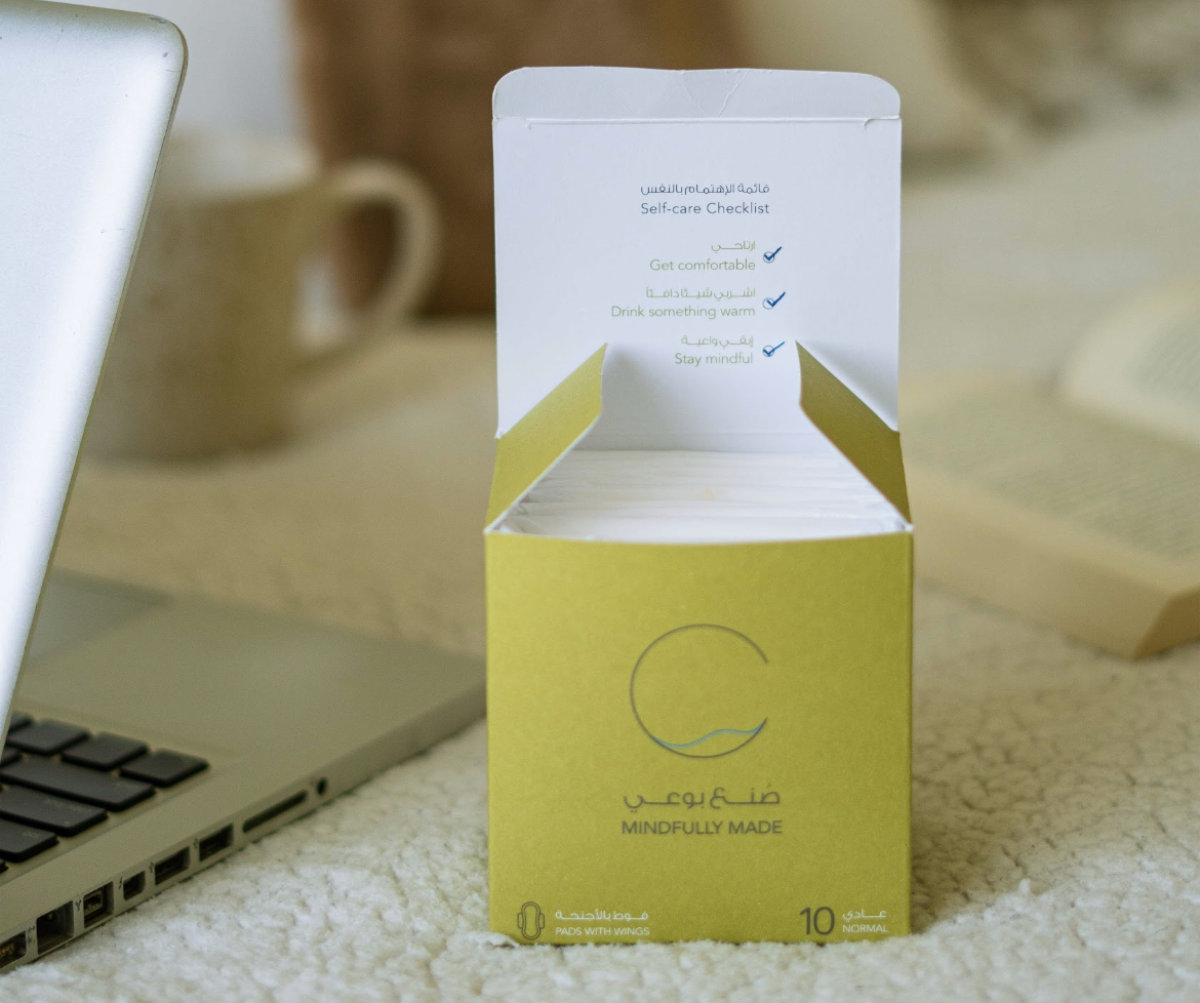RIYADH: Saudi sisters Nora and Joud Alorainy are the brains behind C., a Saudi company that sells organic and biodegradable menstrual pads “mindfully made” for women, by women.
The Saudi brand reinforces the notion that preserving our bodies and the environment is one and the same. The name of the brand, C., stands for “comfort” and “cycle,” and the sisters’ official website states: “Just as the sea, our bodies experience ebbs and flows.”
The sisters had noticed a gap in the Saudi market for more Earth-friendly feminine hygiene products. While living in the US, they came across a variety of biodegradable and organic pads and “noticed, during that time, that it actually did make a big difference,” Nora Alorainy told Arab News.

Single-use menstrual products globally were estimated to generate 200,000 tonnes of waste per year, the Women's Environmental Network found. What many don’t know in the Arab region, and have created a notable taboo around, is the health impacts of conventional pads on the menstrual cycle. (Supplied)
Through their products and mission, the sustainability-driven brand creates awareness around the importance of utilizing biodegradable menstruation pads. Furthermore, organic pads and feminine products have proved to be more absorbent, according to the Saudi company’s clinical trials on their own products.
The Women’s Environmental Network found that single-use menstrual products were estimated to generate 200,000 tons of waste globally per year. Organic pads, with biodegradable packaging, are also a way to reduce plastic waste by eliminating the plastic within the pad itself and its casing.
Due to the layer of taboo around the subject, many women in the Arab region are not fully aware of the health impact of regular use of conventional pads.
FASTFACT
Biodegradable pads by Saudi brand C. are made using organic cotton and are free from chlorine bleaching, pesticides, fragrances, polyester and chemicals.
Research published by the National Center for Biotechnology Information suggests that conventional non-organic sanitary pads play a role in irregular period cycles and cause exposure to toxic and harmful chemicals, such as methylene chloride, toluene, and xylene that impact the reproductive system and health.
Pads by C. are made using organic cotton and are “free from chlorine bleaching, pesticides, fragrances, polyester and chemicals.” Food-grade glue and the Japanese Sumitomo Super Absorbent Polymer are used in the production, along with other biodegradable elements that are also ethically sourced.
Before launching their own brand, the sisters tried to persuade US companies to branch out into the Kingdom. However, many were already overwhelmed due to the existing demand in the domestic market.
Nora Alorainy said: “That’s when we decided to take it upon ourselves to actually bring the product into Saudi.
“With the lack of organic and biodegradable products in the market, we just thought it’s a great opportunity to give women a mindful choice to choose what fits their bodies.”
After months of trial and error with their manufacturers, the Alorainy sisters designed the sustainable alternative to toxic feminine products.
Alorainy added: “Within 215 hours in natural conditions, it (the pad) biodegrades. So not only are you being very kind to your body, but you’re also kind to Mother Earth.”
Products by C., which now ships GCC (Gulf Cooperation Council) wide, are certified and approved by global standards and organizations, including the International Organization for Standardization, the US Food and Drug Administration, the Global Organic Textile Standard, and CE standard, which is the European health, safety, and environmental protection mark.
Following the company’s launch last September, the Alorainy sisters have held sessions on a quarterly basis in collaboration with gynecologists and medical professionals to educate the female public about feminine health and ways to make mindful sustainable choices for themselves and the environment.
Alorainy explained: “It’s not just about the product, it’s also a movement. It’s about making women more connected with their bodies, and the world around them.
“In school here in Saudi Arabia, I’ve never learned about certain topics when it comes to women’s bodies, so we just want it to be that source (for other women).”
The Kingdom has made great strides to champion sustainable practices within the framework of environmental longevity, and the pad substitute is a small way in which women can push for that change in their daily lives.
C. is one of the first brands in Saudi to break the taboo around discussions related to menstrual products, their harmful impact on the environment and the body, and to offer an alternative.
Speaking about the response to the brand, Alorainy said: “I don’t think there’s a huge awareness regarding the use of organic versus non-organic pads, but I think it’s growing, and more and more people are starting to make the shift.
“We’ve been getting good feedback, which I think is the biggest driver for us.”














